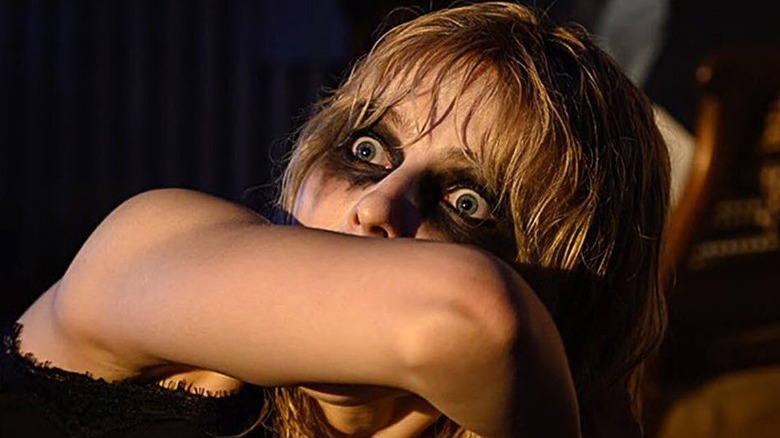Last Night In Soho's Creative Team Has Some Intriguing Remarks About The Movie
Edgar Wright is one of those cinematic talents where the ears of moviegoers all over the globe will perk up whenever his name is uttered. He has been behind artsy, award-winning masterpieces such as "Baby Driver" as well as fun, action-packed movies with earnest, positive messages such as "Scott Pilgrim vs. The World."
With "Last Night in Soho," Wright's upcoming 2021 film starring Anya-Taylor Joy, the acclaimed filmmaker is attempting to add "psychological thriller" to the list of genres in his resume, while also attempting to draw away from the traditional white male lead that has been present in much of his previous work, as the film will feature a strong female protagonist this time around in Eloise (Thomasin McKenzie), a time-traveling fashion designer, and Sandy (Taylor-Joy), a 1960s musician. However, inclusive gestures such as this can make others concerned that it might be mere "virtue signaling," wherein a production includes a marginalized actor purely for the sake of looking more progressive than it actually is, without weaving related subject matter through the story itself.
To hopefully assuage these fears, Wright and co-writer Krysty Wilson-Cairns recently sat down with Empire Magazine in order to discuss how the movie's themes inform the story they're attempting to tell.
Last Night in Soho's writers say being a woman is key to its message
"Last Night in Soho" appears to be many things, but a mindless popcorn movie is certainly not one of them. The movie follows a 1960s-obsessed designer who finds herself appearing in that very decade, due to an otherworldly connection with the singer she idolizes. However, rather than dwelling on a rose-tinted vision of the past, it seems primed to pull back the curtain on the real problems facing that time period.
Edgar Wright told Empire Magazine that it was his and Krysty Wilson-Cairns' goal to not make a movie that simply attempts to pass the now-famous Bechdel Test, but one that really has something profound to say about femininity, sexuality, and particularly the dangers of idolizing the past.
"It's a bit of a cautionary tale of nostalgia," Wright hinted ominously.
Wilson-Cairns added further details. "It's about the exploitation of women," she said. "And the exploitation of any marginalised group, really. I don't think people talk about it enough. I don't think we see it on screen enough and I don't think we understand the full implications of it enough. And I think we need to talk about it in fiction, because that's how people begin to grapple with stuff that's not directly connected to them. So it couldn't not be a theme, because we're talking about the '60s and it was rife."
Clearly, Wright and Wilson-Cairns took their subject matter seriously, and it sounds like "Last Night in Soho" may just turn out to be one of the most intriguing and relevant movies of the year.
"Last Night in Soho" will hits theater on Oct. 29.

